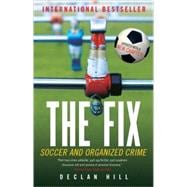
What is included with this book?
| Note about Language | p. IX |
| Preface to the Paperback Edition | p. XI |
| Introduction: The Birds of Prey | p. 1 |
| Asia: The Storm Clouds | |
| Prologue | p. 11 |
| The Conquest of the Locusts | p. 13 |
| "What the Hell Do You Think You're Doing?" | p. 24 |
| Experts in Verbal Bullshit | p. 34 |
| Missing the Big Boys | p. 45 |
| Keeping the System Turning | p. 54 |
| The Mob, Trust, and Serious Reprimands | p. 65 |
| The Collapse of the Betting Line | p. 75 |
| Europe: A Normal Way of Business | |
| Prologue | p. 89 |
| The Arrival of the Locusts | p. 91 |
| The Golden Age | p. 101 |
| To Fix or Not to Fix? | p. 115 |
| How to Fix a Soccer Game | p. 134 |
| Sex and the Men in Black | p. 151 |
| The Guns are Facing the Wrong Way | p. 172 |
| No Point in Going Out There | p. 179 |
| The World Cup | |
| Prologue | p. 193 |
| The Story of Pal | p. 196 |
| Behind the Door | p. 213 |
| The Set-Up | p. 226 |
| A Small Town in Germany | p. 233 |
| The Gold Coast | p. 252 |
| I Swear, I'm Innocent | p. 270 |
| Who Guards the Guardians? | p. 286 |
| Epilogue: The Salvation of Soccer | p. 302 |
| Acknowledgements | p. 315 |
| Notes | p. 318 |
| Bibliography | p. 369 |
| Index | p. 379 |
| Table of Contents provided by Ingram. All Rights Reserved. |
The New copy of this book will include any supplemental materials advertised. Please check the title of the book to determine if it should include any access cards, study guides, lab manuals, CDs, etc.
The Used, Rental and eBook copies of this book are not guaranteed to include any supplemental materials. Typically, only the book itself is included. This is true even if the title states it includes any access cards, study guides, lab manuals, CDs, etc.
Excerpted from The Fix: Soccer and Organized Crime by Declan Hill
All rights reserved by the original copyright owners. Excerpts are provided for display purposes only and may not be reproduced, reprinted or distributed without the written permission of the publisher.